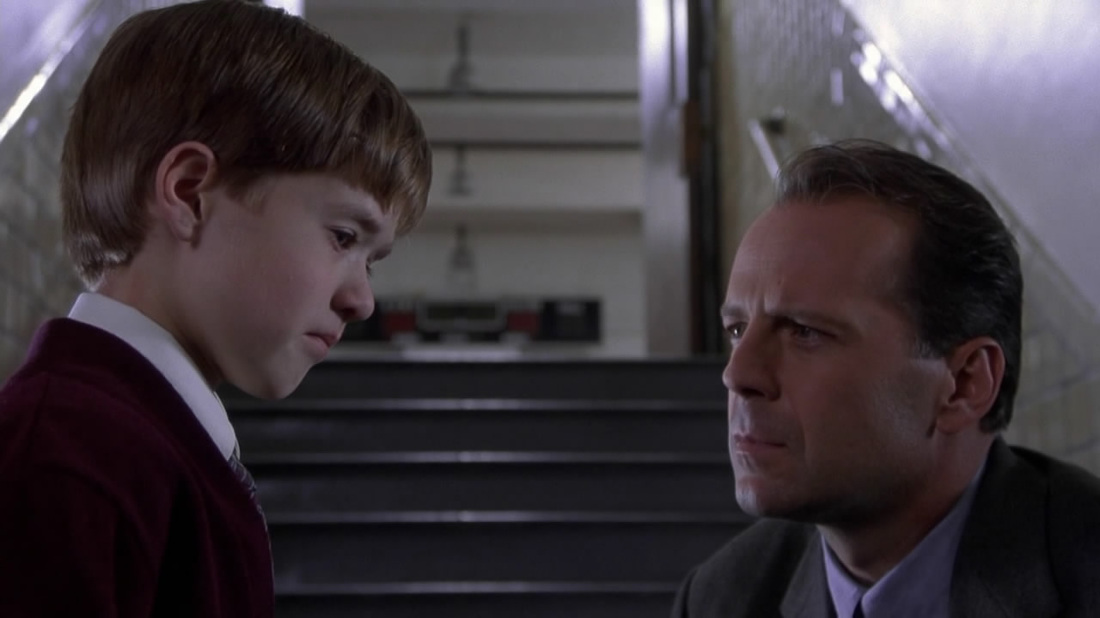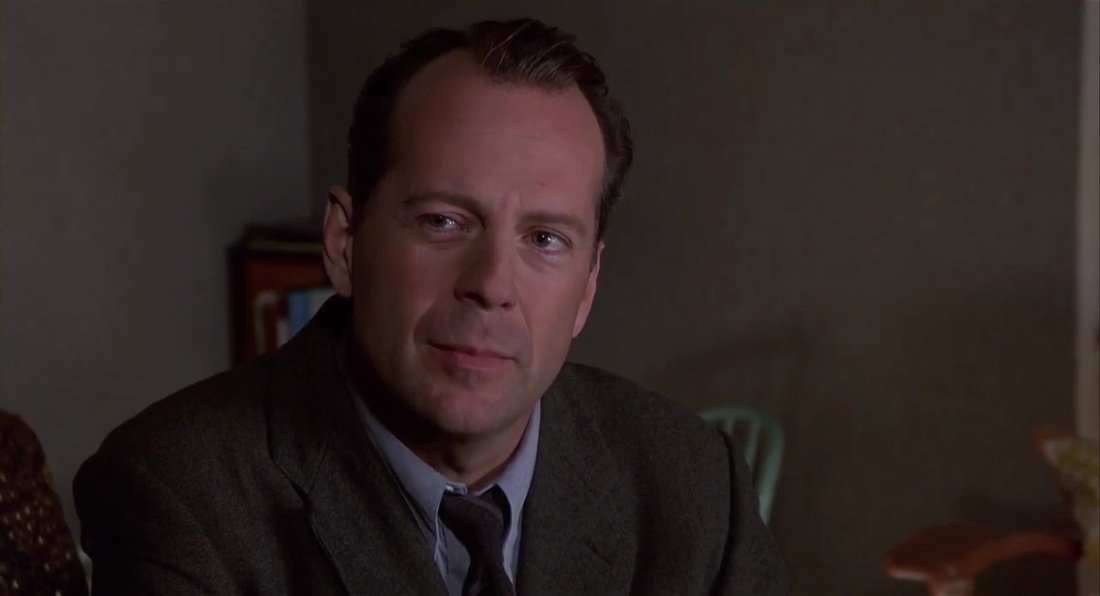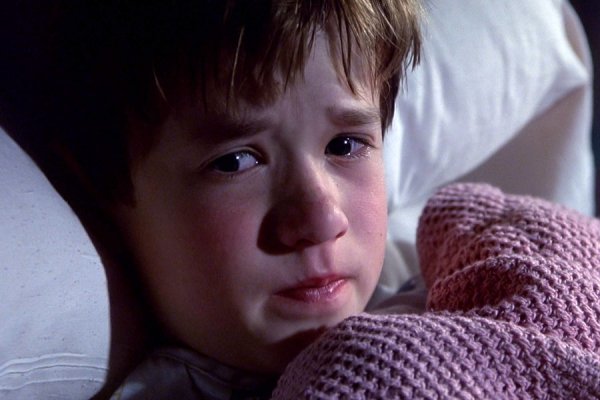One of the most celebrated films in the genre to be released in the couple decades is M. Night Shyamalan’s The Sixth Sense (1999). The film focuses on a young boy (Haley Joel Osment) who has the incredibly unique and terrifying ability to see dead people. He ends up coming into contact with a child psychologist (Bruce Willis) who tries to help him deal with his “gift."
So what exactly made The Sixth Sense such a memorable and Oscar-worthy film? What separates it from the supernatural thrillers of recent years?
To begin, the storyline is original and engaging—something that seems to be harder and harder to come by nowadays. As is required of any film, the first scene is particularly engaging and attention-grabbing: a child psychologist named "Dr. Malcolm Crowe" (Willis) comes home with his wife to discover an intruder named "Vincent" (an old patient of Crowe’s) accusing him of failing to help him with his problem of hallucinations. Vincent then shoots Crowe in the abdomen, then kills himself.
The film shifts to a year later, where Crowe starts working with a new patient, nine year old Cole Sear (Osment), who seems to have the same issue Vincent had. Due to his failure with Vincent, Crowe is reluctant to help, but nevertheless decides to pursue Cole’s issue and work with him.
The Sixth Sense is a very character-driven film, and succeeds in part due to its unique and well-developed characters. In any film you need character development—for a character to change or transform over the course of the film and go through a “catharsis", which is an emotional purging of the main character. The film succeeds in doing this not only with Osment’s character "Cole", but with his mother's and Bruce Willis’ character as well. Furthermore, perhaps more than any other film in this genre I’ve seen, The Sixth Sense dives deep into the psychology of these characters—drawing the audience in (sometimes uncomfortably) close to them. This allows the audience to become intimate with the characters and make them relatable.
Of course even with well-written characters, The Sixth Sense wouldn’t have succeeded as well as it did without its incredible cast. Director M. Night Shyamalan wrote the screenplay having Bruce Willis in mind for the lead role, but due to the relatively tight budget of the film, didn’t expect to be able to get the high profile actor. Nevertheless, Willis was very interested in the project and jumped aboard almost immediately.
The real breakthrough performance in the film, however, came from the youngest cast member—10 year old Haley Joel Osment. Shyamalan noted, “Cole’s role—it’s so difficult and so complex; it seemed like the most impossible task ever. And then Haley Joel Osment comes in and I’m like, ‘What a cute little kid, what a sweet kid’. So I said let's do the part…I was really beat—‘how many times have I done these scenes with these kids?’ I’ve heard my words just destroyed a million times with a million different kids and I was just so beat. And I just lean back and he starts the scene and it was like I had never heard the scene before…I never heard the dialogue before…it was a movie I didn’t write. It was just all of a sudden every word was perfect…I go ‘Who are you?’” Bruce Willis also commented on Osment, “He’s the most talented child actor I’ve ever seen…I mean I would rank him with some of the best adult actors I’ve ever worked with. He’s just immensely talented and pretty much unaffected by his talent and doesn’t really make a big deal about it, but he really is a good actor.” Osment’s standout performance as Cole earned him an Academy Award nomination for Best Actor in a Supporting Role, the second youngest actor to ever receive the nomination.
Below is an extremely poignant scene in the film: Cole decides to tell Crowe his secret. The closeup shots are heavily utilized here, and with good reason given the extreme importance and intimacy of the moment. Notice when Cole expresses the secret, the camera slowly dollies in to his face, revealing the inner terror he (and the audience) now feels. This is utilized in the same way when the camera switches to Crowe’s reaction, equally revealing his strong concern and terror. Enough credit cannot be given to James Newton Howard for his chilling score, which is sure to send shivers down your spine.





 RSS Feed
RSS Feed
